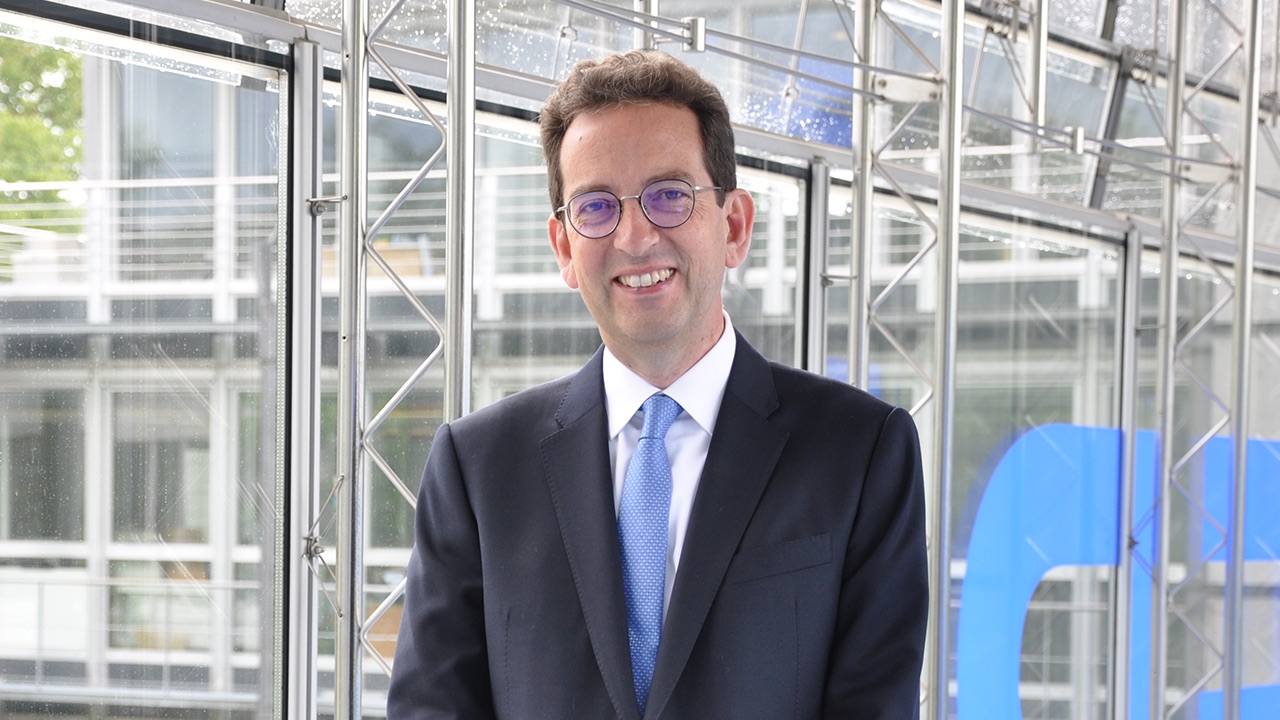EBU Moscow Bureau – eye-witness to Russia at war
13 October 2022
When President Putin ordered the invasion of Ukraine on 24 February, Kate de Pury, Head of EBU Moscow, knew that she and her small team would have a critical role to play in reporting Russia’s war. It was a top story on world news agendas and came at a time when the 30-year-old EBU Moscow Bureau along with most western media in Russia faced significant challenges from the Russian state.
“For EBU Moscow, this was a huge moment of course,” says de Pury. “We were witnesses to the Kremlin’s conduct of the war and more crucially, to the behind-the-scenes impact it would have in Russian society – on its people and institutions. We needed to report every element of this story so that it was accurately reflected across the world."
“But we were only too aware that, just weeks earlier, our colleagues at EBU Member, Deutsche Welle, had seen their Moscow operation closed down and their press credentials rescinded. We were walking a tightrope.”
For the Eurovision News Exchange – sharer of verified, trusted news stories worldwide – it was imperative that the Moscow Bureau continued its role in delivering the Russian side of the story, which would be key to a wider understanding of how the main players’ strategy and tactics developed as the war reached critical turning points. This meant having access to coverage and analysis of President Vladimir Putin, the Russian Defence Ministry and Foreign Minister Lavrov.
De Pury is clear on the value of being on the ground and independent: “The key is to understand not sympathise. We’ve been here for 30 years with long and deep contacts with Russian officialdom, “ she said. “We know who to speak to and which news sources to tap into in order to tell the stories in an independent way.”
EBU has sourced coverage from stringers and social media to tell the story of what was really happening in Russian-occupied east Ukraine, from the widespread destruction in cities like Mariupol and Severdonetsk, to Moscow’s attempts at ‘Russification’ and the worsening security situation at the Zaporizhzhie nuclear power plant, especially in the run-up to the Kremlin’s illegal annexation of these territories.
The Bureau also plays an important part in covering daily life under sanctions in Moscow and St Petersburg, as the Russian economy tries to stay on course. Recent stories have included the closure of fashion store, H&M; the rebranding of McDonalds and Starbucks; the Russian Central Bank’s interest rates cut and forecasts; and the Gazprom story. With energy an increasingly key weapon in Putin’s arsenal, EBU’s coverage included new pictures from St Petersburg and analysis from western and Russian energy commentators and was used worldwide. And when Putin’s announcement of mobilisation rocked Russian society, EBU crews covered protests in Moscow, delivered analyst interviews and shot voxpops showing a marked change in public perceptions as the war came close to home.
As well as delivering video of the important stories, EBU Moscow plays a key liaison role with those major western media outlets who have been barred from operating within Russia but also need the accounts and stories so crucial for audience understanding of the war. The Bureau is in regular communication with representatives of those outlets to understand and also serve their news priorities too.
The staff in the Bureau have had to work creatively in a difficult environment to deliver news from new sources. Social media was a critical source of video for stories on anti-mobilisation protests across Russia, as hundreds of thousands of young Russian men crossed borders to Kazakhstan, Georgia and Mongolia to escape the draft. Close liaison with other EBU Members such as Georgian TV delivered coverage as the young men reached safety and told waiting journalists of their refusal to fight in Putin’s war.
The team works closely with the Eurovision Social Newswire Team in Geneva on the crucial verification and clearing of content. It also keeps across all the legal developments affecting news operations within Russia. For example, the ‘fake news law’ to which the Russian government keeps adding amendments. The team takes independent legal advice and is able to issue updated guidelines on new areas of legal risk in the process of newsgathering, to all EBU Member organizations.
Pooling information with EBU Member organizations on practical issues and logistics – from how to get accreditations to money transfers for paying staff – has also been essential as western news media navigates the shifting security landscape inside Russia.
“It’s a big challenge for EBU Members and EBU Moscow to cover the story and keep staff safe, but we’ve shared experience, pooling tips and expertise,” said de Pury, adding “We’ve seen independent reporting here continue as we see what’s safe and possible and we need to keep telling the real story of what’s going on inside Russia.”
Notes:
There has been an EBU Bureau in Moscow for over 30 years.
The service is headed by Kate de Pury, Kate previously worked for both Associated Press and Reuters in Russia. She oversees a team of seven (three producers, two engineers and two support staff in finance and administration).





